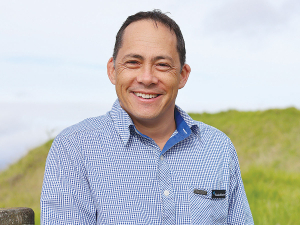Dairy farmers have the perfect tool at their disposal this calving season to set their herds up for future productivity – the rumen in their replacement heifer calves.
Raising healthy replacement heifer calves that efficiently turn feed into milk is fundamental to the future of New Zealand’s dairy herd, says SealesWinslow quality and technical manager Paul Drew.
“Farmers have a single fundamental tool at their disposal that can help them grow the most efficient dairy cows possible and that’s the rumen in their replacement heifer calves,” says Drew.
The rumen is a vital part of a calf’s stomach, responsible for fermenting solid feeds and forages and turning them into usable energy. For a calf to thrive, its rumen needs to develop quickly and effectively. Drew says the key to achieving that is getting enough starch into their diets to kickstart the development of gut microbes.
“These microbes are essential for fermenting feed and producing volatile fatty acids, which are crucial for energy production,” he says.
“Feeding a starch-rich diet from early on helps grow the calf’s rumen from a small, underdeveloped organ into a fully functional part of the stomach that can efficiently digest and absorb nutrients, enhancing the animal’s future milk production and profitability."
Cows with fully developed rumen functions become feed-efficient machines which supports initiatives like Fonterra’s Scope 3 emissions that are targeting a 30% reduction in onfarm emissions by 2030. Fonterra has signalled it expects to achieve 7% of that reduction through farming best practices such as feed quality and improving herd performance. “By focusing on starch-rich diets, farmers have a golden opportunity to rear replacements that become super-efficient at turning feed into milk, enhancing both production and profitability while contributing to the industry’s sustainability efforts,” says Drew.
Starch is a powerful energy source. The byproducts of starch fermentation in the gut, particularly volatile fatty acids, provide up to 75% of the energy needs of a fully developed cow.
“By feeding your calves high-starch feeds, you ensure they get the energy they need to grow strong and healthy,” says Drew.
Starch not only fuels growth but also enhances the structure of the rumen wall. The rumen wall needs to develop finger- like projections called papillae, which increase the surface area for nutrient absorption.
“Calves fed with starch-rich diets show significantly better development of these papillae, allowing them to absorb more nutrients and grow faster which all adds up to better efficiency,” says Drew.
“Calves fed with highquality feed with a good starch content reach target weights faster and reduce the overall amount of feed needed. By incorporating starchrich feeds into your calves’ diet, you help fire up the biggest tool you have to grow a more productive dairy herd.”


















